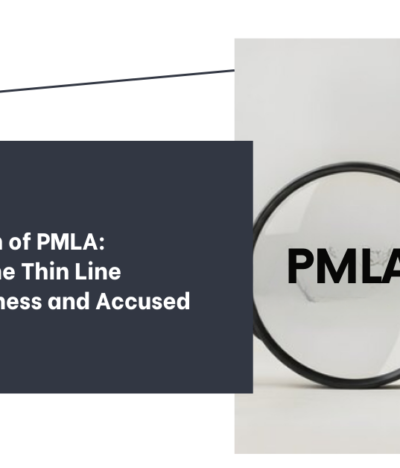The Securities and Exchange Board of India on 06th May 2025 issued a consultation paper to propose a separate mechanism for voluntary delisting of Public Sector Undertakings which deviate from the provisions provided under SEBI (Delisting of Equity Shares) Regulations, 2021. This blog aims to analyse the proposal and its probable impact on different stakeholders in the market.
What is delisting?
Delisting of Equity Shares is a formal process whereby listed companies permanently remove their shares from being traded on any or all of the stock exchange. Delisting thereby terminates the availability of securities in the secondary market through public trading platforms. It saves the companies from regulations and compliances that apply on listed entities, therefore, reducing its obligations to the market and to public scrutiny.
Under the governing regulations of the SEBI, delisting is of the following two types:
- Compulsory Delisting: Herein, the market regulator orders for delisting of shares of a company for specified reasons. In India, the Securities and Exchange Board of India orders compulsory delisting on grounds prescribed in the rules made under Sec. 21A of the Securities Contracts (Regulation) Act, 1956. Some of the grounds may be unfair trade practises by the management or promoters of the company or non-redressal of investor’s repeated complaints or non-payment of listing fees, etc.
- Voluntary Delisting: Herein, the listed companies themselves apply for delisting of their equity shares from the stock exchange for several reasons like negligible trading on the stock exchange or the company is suspending its operations or has become a sick industrial company.
SEBI (Delisting of Equity Shares) Regulations, 2021
The 2021 regulations superseded the earlier 2009 regulations to provide for a more robust, efficient and simplified framework for listed companies intending to delist their equity shares from being traded on the market. The Regulations provide that the delisting process begins with the filing of the Initial Public Announcement with the stock exchange, followed by approval from the Board of Directors. Such approval is based on a due-diligence report generated from a peer reviewed Company Secretary. Within 45 days of such approval, a special meeting of the shareholders is to be called for voting on the delisting proposal. The resolution will be passed only when the votes in favour are at least two times of the votes casted in against of the proposal. Thereafter, an in-principal approval is sought from the stock exchange followed by detail public announcement and letter of offer.
Calculation of Exit Price
Under Regulation 19A of the Delisting Regulations, the SEBI provides a floor price, i.e., the minimum price which the acquirer has to pay for buying the public shares to achieve the requirement of at least 90% shareholding of the company for a successful delisting. The floor price is calculated differently for shares which are frequently traded and which are not. The mechanisms are as follows:
- For frequently traded shares: In this, floor price has to be calculated by volume-weighted average market price for a period of 60 trading days immediately preceding the reference date on the stock exchange where the maximum trading volume of the equity shares is recorded. Herein, each day’s price is weighted by the trading volume on that day. Therefore, days with higher trading volumes have a greater influence on the average and thus, the floor price aims to be a fair reflection of the true market value.
- For infrequently traded shares: In these shares, the price is determined by an independent valuer based on certain metrics including book value, comparable trading multiples, income approach and other customary valuation metrics for valuation of shares of companies in the same industry. It is considered that the value determined by the independent value would be fair because he would be objective, free from conflict of interests and such a valuation would be based on evaluation of different metrics.
Deviation Proposed by the Consultation Paper
The Consultation Proposal released by SEBI aims to provide a separate mechanism for calculation of exit price for shares of the Public Sector Undertakings which intend to delist voluntarily. The proposal provides that in PSUs where 90% or more holding is with the promoter or promoter group, i.e., the government, the calculation applied for non-frequently traded shares would be applied in all cases even if the shares are traded frequently. It means that even when the shares of a PSU would be frequently traded, the floor price would be determined by an independent valuer based on different metrics and not its actual market price or frequency of trading.
The SEBI has reasoned that these shares often tend to be regularly traded on the market at prices which are generally not commensurate with the book value of these companies. It happens because when shares of these companies are held by the government, it reduces risks and offer more security for investors. In this situation, the 60 days’ volume weighted average market price rises to unreasonable levels, thereby rendering delisting efforts as financially burdensome. In view of this drawback, SEBI has proposed the deviation so as to enable economically viable delisting pathways.
Problems with the Proposal
The proposal of SEBI suffers from many shortcomings which are as follows:
- Undermining independency of market: When the floor price would be fixed by independent valuers, it would ignore the true price the investors were aiming to earn through frequent engagement in the trading of shares.
- Risk of lower exit price: Market-based dynamic pricing model often yields higher floor prices for investors of PSUs. If this is curbed, it would potentially disadvantage the minority shareholders who would have otherwise benefited from the higher, market-driven prices.
- Erosion of investor confidence: When frequently traded shares would not be valued on the basis of transparent and discoverable prices, it would discourage the public investors to engage with shares of the PSUs for the fear of low valuation even when it is frequently traded.
- Justification of valuation mechanism: Independent valuation is justified for shares which are not frequently traded because there is insufficient trading data. However, when actual trading and investor engagement details are available, independent valuation is unwarranted.
- Biasness in valuation: In delisting of PSUs, the government is the majority shareholder and the party seeking delisting. In this situation, it may influence independent valuer, directly or indirectly to fix a lower floor price.
- Increase in litigation: When prices would be fixed by subjective non-mathematical approaches, the floor prices would seem unjustified and would therefore lead to increase in litigation over the fairness and adequacy of floor price.
- Discrimination with private undertakings: SEBI has proposed to apply this separate mechanism only for PSUs and not any private undertakings. There may be private undertakings which may be similarly circumstanced. If this proposal is accepted, it would unreasonably discriminate with such undertakings.
Therefore, the proposal of SEBI for a separate mechanism for only PSUs is completely unwarranted and discriminatory in nature. It undermines the needs of the market and the individual shareholders who are in minority in front of the mighty government holdings. Their interests must not be unreasonably sidelined to save the pockets of the government treasury.






